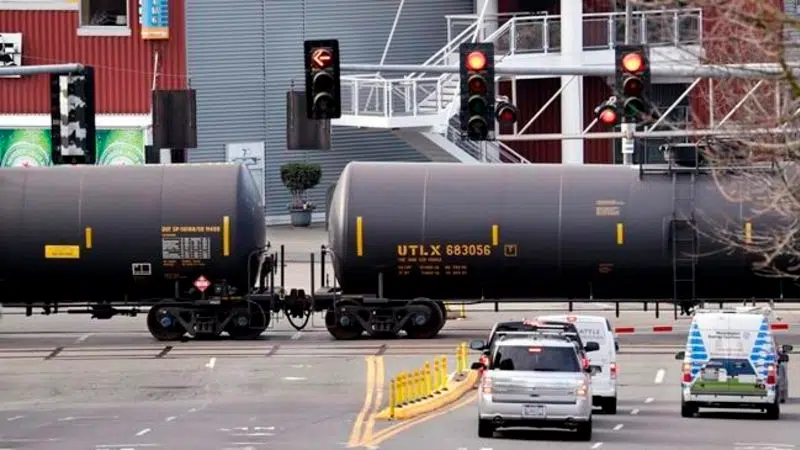
Montana, North Dakota push against Washington state rail law
BILLINGS, Mont. — Attorneys general for North Dakota and Montana asked the Trump administration on Wednesday to overrule a Washington state law that imposed new restrictions on oil trains from the Northern Plains to guard against explosive derailments.
In a legal petition to the U.S. Department of Transportation, Montana Attorney General Tim Fox and North Dakota’s Wayne Stenehjem said federal authority over railroads pre-empts the state law.
Washington Gov. Jay Inslee, a Democrat, in May signed the measure that requires oil shipped by rail through the state to have more volatile gases removed to reduce the risk of explosive and potentially deadly derailments.
The move followed a string of fiery and explosive oil train derailments over the past decade, including a 2013 accident in Lac-Megantic, Quebec, that killed 47 people. The explosions drew widespread public attention to the volatile nature of Bakken crude shipments.


